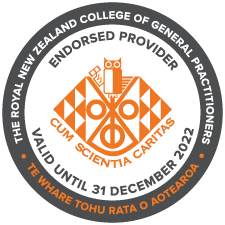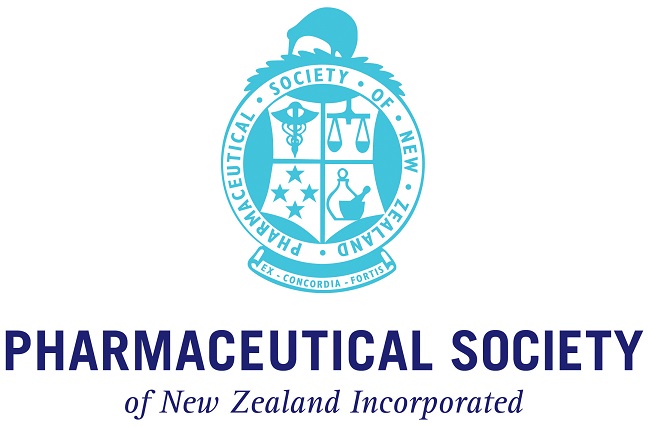Episode six of our Legendary Conversations podcast continues our discussion with Lauren Smith, senior practice fellow at the University of Otago School of Pharmacy. In this episode, Lauren uses an impetigo case study to clarify the appropriate use of topical antibiotics.
Antimicrobial stewardship: It's time for collective action
This video is a recording of the live webinar hosted by He Ako Hiringa on 22 November 2022. Dr Sharon Gardiner and associate professor Matire Harwood highlight the importance of antimicrobial stewardship in New Zealand.
In this video, Dr Gardiner discusses how:
- 1.3 million deaths were attributable to antimicrobial resistance (AMR) globally in 2019
- Aotearoa New Zealand has high antimicrobial use, and much is inappropriate
- although relatively insulated from AMR to date, we are now at a tipping point
- we can slow AMR by using antimicrobials only when needed, and using them well
- a collective, equitable response is needed to ensure we keep antimicrobials working.
Click here for Dr Gardiner's presentation slides.
Dr Harwood discusses:
- a primary care and Māori perspective on antimicrobial stewardship
- recommendations from Kotahitanga: Uniting Aotearoa against infectious disease and antimicrobial resistance.
Click here for Dr Harwood's presentation slides.
This video has been edited for clarity.
Timeline
- 00:00 - 02:55 Introduction.
- 02:55 - 24:03 Professor Matire Harwood: A Māori perspective and the recommendations from Kotahitanga: Uniting Aotearoa against infectious disease and antimicrobial resistance.
- 24:03 - 48:10 Dr Sharon Gardiner: New Zealand's high antimicrobial use, the tipping point, and how we can slow with a collective, equitable response.
- 48:10 - 1:02:42 Q&A and closing.
Dr Sharon Gardiner
Sharon Gardiner [BPharm(Hons), MClinPharm, PhD] is the antimicrobial stewardship pharmacist at Te Whatu Ora Waitaha Canterbury and co-lead of the New Zealand Antimicrobial Stewardship and Infection Pharmacist Expert Group.
She was a member of the expert panel for the Prime Minister’s Chief Science Advisor’s major report entitled Kotahitanga – Uniting Aotearoa against Infectious Disease and Antimicrobial Resistance (2021). Collaboratively, she has co-led multiple national antimicrobial stewardship initiatives including a viewpoint calling for urgent national leadership and co-ordinated antimicrobial stewardship action (2021). She has co-led three national World Antimicrobial Awareness Week (2020 – 2022) initiatives, and a major sepsis improvement programme in Waitaha Canterbury.
Sharon has enjoyed a varied career as a pharmacist including hospital, community and academic work. Her research interests centre on antimicrobial stewardship and optimal antimicrobial dosing strategies.
Associate professor Matire Harwood (Ngāpuhi)
Matire Harwood [MBChB, PhD] is a hauora Māori academic and GP dividing her time across the Department of General Practice and Primary Care at Auckland medical school, where she is HoD, and Papakura Marae Health Clinic in south Auckland.
She has served on a number of boards and advisory committees including Waitematā DHB, Health Research Council, ACC (Health Services advisory group), COVID-19 TAG at Ministry of Health and the Steering Committee for the appointment of Te Aka Whai Ora. Matire co-chaired the working group for Kotahitanga: Uniting Aotearoa against infectious disease and antimicrobial resistance.
In 2017, Matire was awarded the L’Oréal UNESCO New Zealand ‘For Women In Science Fellowship’ for research in indigenous health. In 2019 she received the Health Research Council’s Te Tohu Rapuora award for leadership in research to improve Māori health, and in 2022 she received the RNZCGP Community Service Medal.
Professional college endorsements
This activity has been endorsed by The Royal New Zealand College of General Practitioners (RNZCGP) and has been approved for up to 1 CME credit for continuing professional development purposes (1 credit per learning hour). To claim your CPD credits, log in to your Te Whanake dashboard and record these activities under the appropriate learning category.
This activity has been endorsed by the PSNZ as suitable for inclusion in a pharmacist’s CE records for CPD purposes.




